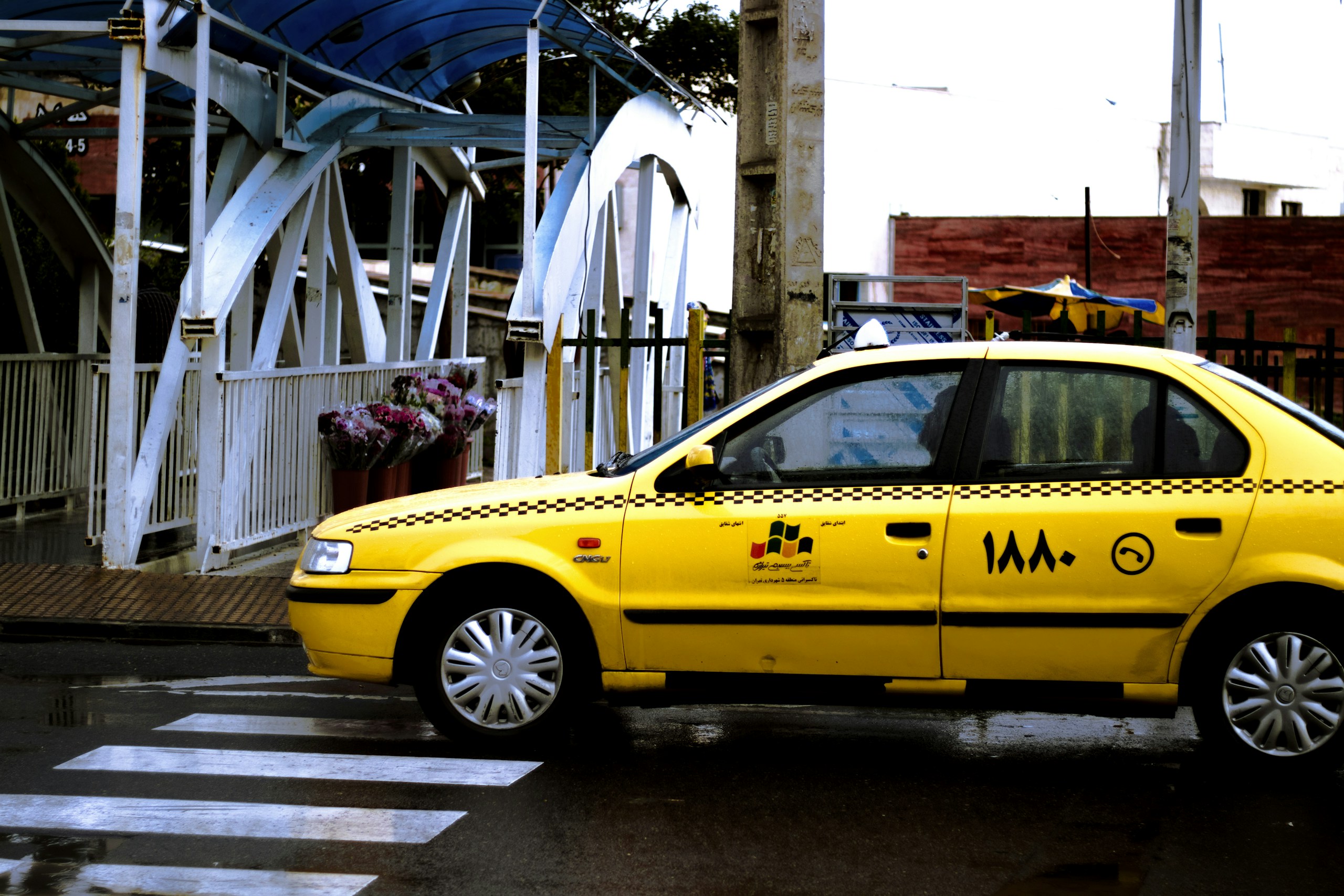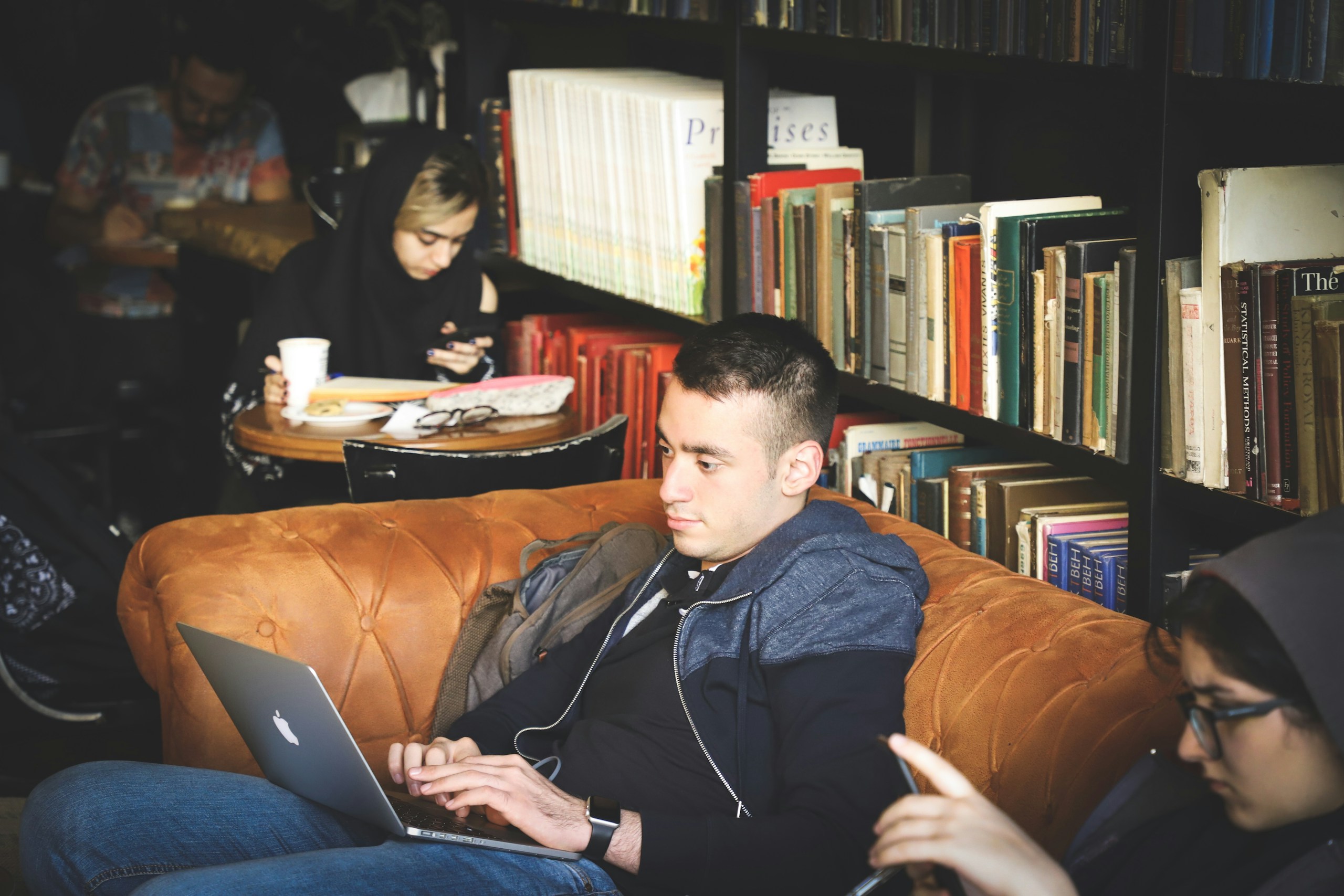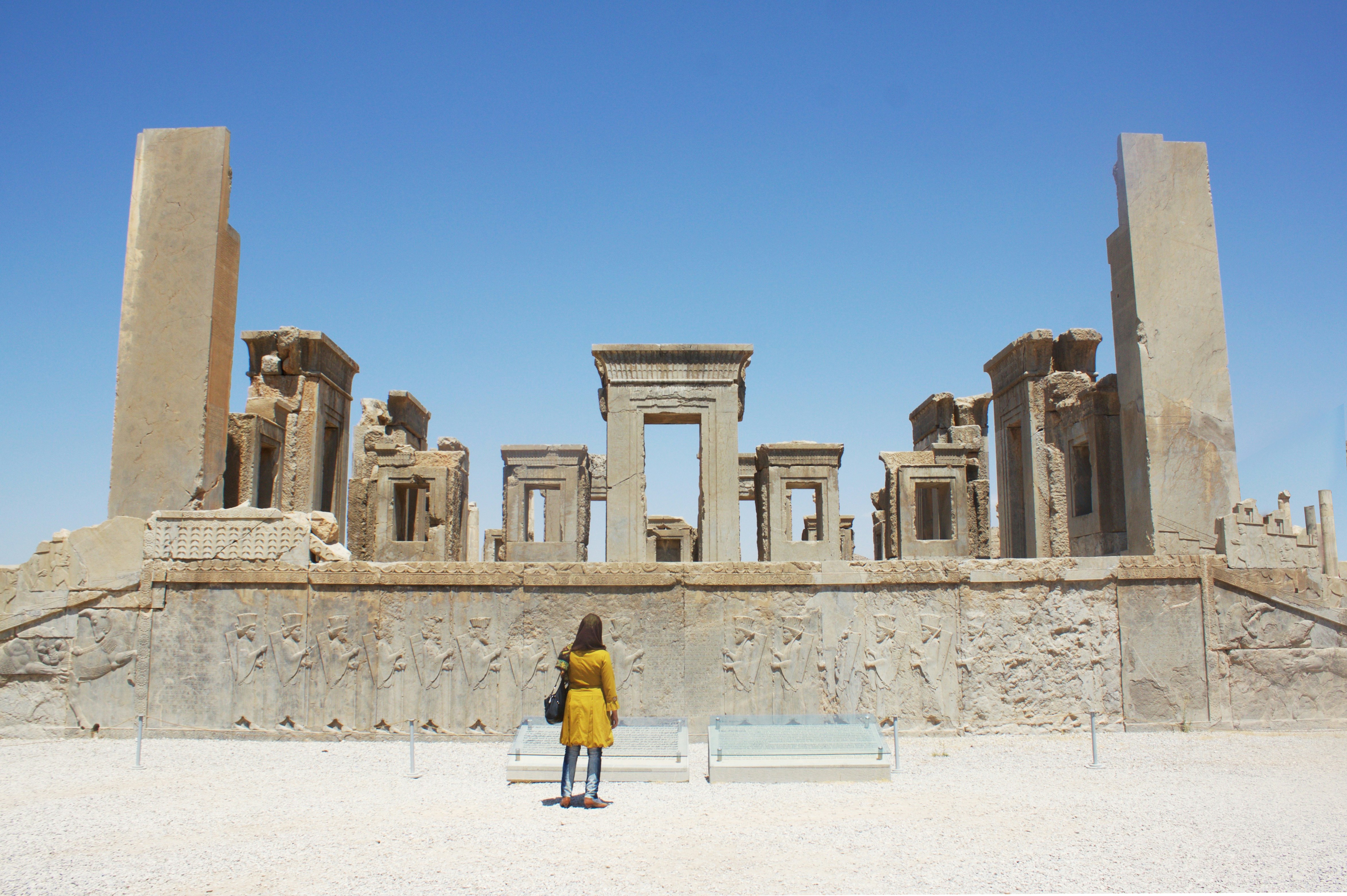By now, I’ve written part 1 and part 2 of cultural quirks, about culture shock, and about some Iranian traditions and customs. This post I’m calling “differences”, but I think we can agree that there is some overlap between all of these. Some of these are cultural, some are completely random, and some most are about as deep as Seinfeld’s observations (which also means that they are more fun and practical if I may say so myself). Nonetheless, they are differences that for one reason or another stand out to me.
As I started writing this, I noticed I had a lot to say about each one and the post was going well over 3,000 words. So I decided to split it up into two parts because 1) I’ve lost my mojo writing recently and this will hopefully get me back [somewhat] on track and 2) you’ll have something to look forward to next week! So let’s get to the first batch of random differences- cultural and other- between Iran and the US.
Personal space
The concept of personal space is different in any culture, and Iran differs from the US namely in the fact that it’s pretty much non-existent. I’ve experienced several instances when I’ve been sitting in a shared taxi, and one of the passengers gets out. You would expect the person in the middle to move over at that point, right? Wrong (ok, unless it’s a man). They just stay put in the middle with a big empty space next to them. And all I can focus on at that point is, “Look at all that room! Why won’t she move over!?” Cramped metro cars don’t really faze passengers here either. But get a little too close to someone in the US, and they look at you chap chap (literally “left, left”, this means “to scowl”).
I’ve even explained the concept of a buffer zone to my students here in Iran. When you go into a public bathroom in the US, you leave a one-stall buffer zone whenever possible. They think it’s hilarious…and a bit ridiculous. (Side note: the concept of a buffer zone didn’t seem to be that big in Chile either. I remember being at a bank once, and a lady came and sat right next to me even though the waiting area was near empty. How very Iranian of her, I thought.)

Standing on the escalator
In the US, you usually stand on the right and walk on the left. Tourist season in DC was always rough, but I was a disciple of the more passive approach- in my mind (or del [heart], as we say in Persian) I’d curse the tourists who stood on the left and right, thereby blocking everyone. When that one brave (and frustrated) soul would yell out, “STAND ON THE RIGHT!” I’d silently bless them, only to see bewildered looks on the tourists’ faces who didn’t realize this person meant them!
In Iran, on the other hand, the escalator is simply for standing. I mean, why would anyone in their right mind walk up (or down) a moving staircase? If you want to walk, buddy, the stairs are right there. In fact, Iranians form two standing lines on the left and right to accommodate more passengers. And those who need to make tight connections at City Theater Station during rush hour? Well, it’s some major escalator-side entertainment to watch them haul ass two stairs at a time.

Treating others
Ok, in Iran, when you invite someone out, it’s pretty much understood that you are treating. There will inevitably be some taarof involved, but since you invited, the other person can’t really insist too much. I had a bout of reverse culture shock on this one when I was back in the US and someone invited me out for lunch. The Iranian in me offered to pay at the end, and I was honestly taken aback when this person so easily took me up on my taarof the very first time. We’re not in Tehran anymore, Toto.
Replying to messages/calls
This is a big one for me mainly due to my introverted nature. Those memes about introverts staring at their phones while it rings, just waiting for it to stop so they can continue what they were doing? That’s me. I’ll call back. Just give me a minute to mentally prepare.
But Iranians are extra. 1- They expect you to reply ASAP. 2- If you don’t, they will HUNT YOU DOWN. 3- When they finally catch you, they’ll make it a point to tell you they called, and you (gasp!) did not answer! It’s almost as if they expect you to explain why you didn’t. I’ve had relatives call my friends and other family members asking where I am and telling them to tell me to call so-and-so. Just yesterday, I finished a class and had 4 missed calls, a text message, and DM in my Instagram telling me to contact them. (And if there’s a surefire way to get me to reply to you even later, it’s doing stuff like this. “Hi, my name is Pontia, and I’m lajbâz (obstinate/stubborn).” The first step is to admit it yourself, right?)
Then one fine day, I was listening to a totally random episode of a podcast I don’t normally listen to, and lo and behold this exact topic came up! The host, an Iranian who immigrated to the US, was talking about how he thought it was rude when in the US, people didn’t respond to him right away. AHA! So this really is a thing! And hearing it was incredibly validating.

Expressing affection
Persian is poetic. Persian is sugar, as the saying goes. Those of you who have been with me for a while know how much I adore it. However, the beautiful and flowery nature of this language causes things to get lost in translation. More importantly, I sometimes take issue with the sincerity of it. As Iranians, we constantly sacrifice ourselves for others, call everyone and their mother azizam (sweetheart), and miss every person we’ve ever come into contact with. When someone tells me, “Bebinamet, delam tang shode,” (Let’s see each other, I miss you.), I think it’s sweet, but I’m like really? You? Miss me? I’m pretty sure it’s just taarof. Or when my crush calls me azizam, sure, my heart skips a beat, but then I remember he probably calls 15 other girls that, too. (And my heart rate returns to normal.) I’ll never forget the story my mom used to tell about her Swiss friend who asked what ghorbunet beram means because she kept hearing my parents say it to each other. When my mom explained it, she turned to her husband and said, “How come you never say stuff like that to me!?” I mean, yah, it’s super sweet, and in the case of my parents, they actually meant it. But if I’ve said it once, I’ve said it 100 times- my produce vendor also tells me ghorbunet beram when I shop from him. And I’m certain he harbors no romantic feelings for me whatsoever.
When I lived in Chile, I used to hear lots of “Miss, te quiero!!” and get plenty of texts ending in a TKM (te kiero mucho, in text spelling). And while it was very sweet that the students could express themselves so easily, (cue Carrie Bradshaw voice) I couldn’t help but wonder, how much could it really mean if they’re just flinging these words around at anyone and everyone?
Maybe what I’m trying to so-wordily and not-so-eloquently say is that I know these expressions sound dreamy and oh-so-romantic, but I’m here to burst your bubble and tell you to take them with a grain of salt. I feel like in the US we are a little more selective about when and to whom we use such terms of endearment. Not that it never happens. I mean, I grew up in the south and got my fair share of “baby,” “sugar,” or “honey” as sweet little terms of endearment. But just trust me when I say that in Iran, it’s much more. It’s ingrained in everyone.
A friend and I recently had a long conversation about this. Her idea was that it’s expected, desired, and highly regarded in Iran to speak this way (and after that we had a fascinating discussion dissecting the layers of meaning and use of jân and aziz and everything in between and how they changed when adding the suffix -am). While I totally agree with her, I for one can’t talk this way with just anyone. The secretary at an office may call me azizam because she has no idea what my name is, and azizam is foolproof. But my [perhaps] cold American heart will take a more straightforward approach and simply ask what her name is.

Saying “no”
Ok, this is hard for a lot of people regardless of nationality or culture. Multiple articles have been written on how it’s hard for people, especially women, to say no. In the immortal words of one Ms. Oprah Winfrey, “‘No’ is a complete sentence.”
Which brings us to Iranians. Given our culture of taarof, they will never say “no” (or “I don’t know”, for that matter). You’ll get one hell of a roundabout answer, but it’s your job to figure out that the answer, in fact, is no. (I speak from a great deal of experience.) And be warned- it’s not easy.
Another time I felt validated regarding this point- a woman asked a metro employee if she was going in the right direction, and he said yes. She mentioned she had asked someone else, and they told her to go in the opposite direction, to which the employee responded while shaking his head, “Iranians still haven’t learned to say, ‘I don’t know.’” Amen, sir.
Blessing people
In the US, it’s common to say, “Bless you,” after someone sneezes. Not so in Iran. This particular topic became a bit of a joke on a road trip with some friends. While I was blessing them left and right after every sneeze, my sneezes were met with crickets. (Also, I don’t know why we were sneezing so much.) Finally, one of them asked why I kept saying, “Âfiat bâshe,” and I explained that’s what we do in American culture. That’s when I learned that in Iran, it’s not so important to say that after someone sneezes. (Instead, there’s a common and more widely believed superstition related to sneezing that you can read about here.) This also answered a lingering question for me about why Iranians never say “thank you” when I say “bless you.” (I always thought maybe they didn’t hear me.) From then on, every time I sneezed, my friends all scrambled to be the first to say, “bless you”, noting that it was important for Americans.
For Iranians, on the other hand, I learned that it’s more important to say, “Âfiat bâshe” when someone comes out of the shower. This was nothing new to me since I heard it and used it a lot growing up. I just never realized it was taken so seriously. And that’s when I did my best to remember the Iranian tradition just as my friends had been so sweet to do for me.
I hope you enjoyed part 1 of this light-hearted read. I’ll be back with part 2 next week!
Share it on Pinterest






Hermione
22 June 2020 at 14:45Love this different behaviour essay. It is very novel. Had me laughing at the strangeness of customs and etiquette. Here in GB there is a difference between London behaviour and other cities.
Pontia
23 June 2020 at 06:12Thank you, glad you enjoyed it! Yah these customs can be amusing. Similar to GB, I would say there’s also definitely a difference between Tehran behavior and other cities.
Yusuf NW
22 June 2020 at 16:22Great Article Ma’am 😊
I Appreciate your Hard Work 👏🏻
Persian is Sugar but I think too much Sugar can get us Diabetes 🤭hhhhhh!
In my Opinion, the Sugar shouldn’t be too much and it shouldn’t be too less. It should be in Appropriate Quantity 😉
Thanks for the Article, I really enjoyed reading it 😊🌸
Pontia
23 June 2020 at 06:13Very well said! I completely agree 🙂 Thank you for reading. I’m glad you enjoyed it!
Alanna Peterson
23 June 2020 at 19:13Love this post! I always find these cultural differences so fascinating (and hilarious, the way you’ve presented them here). I’d be in trouble with my slow responses to texts/calls–totally relate to your introvert nature on that one! Looking forward to reading part 2 🙂
Pontia
18 July 2020 at 13:38Thanks, Alanna! Haha, yah I’m sure we are very similar in that regard! My part 2 is coming, albeit later than expected! As always, life gets in the way 🙂 But it’ll be up soon. We’ll see if there’s a part 3 because I keep coming across new things. Haha. Thanks for reading!
Dana
29 June 2020 at 23:18Loved this – first I ever heard of a blessing to give someone when they have come out of the shower. Maybe I’ll just give them a confusing “Bless you”…
Pontia
18 July 2020 at 13:39Thanks for reading Dana! Haha, a blessing after a shower is a little funny no? Give it a try and see what the reaction is 🙂